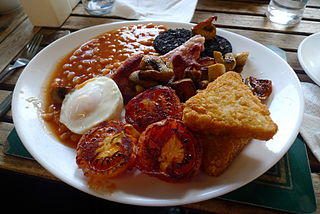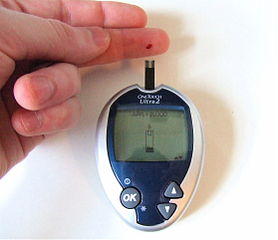7 Ways To Prevent A Brain Stroke
A stroke is the second most common cause of death around the world. In the United States it has fallen to the fourth most common cause of death for Americans. The prevalence of a stroke these days is largely due to an aging population especially in developed nations. Modern medical treatment and management has played a major role in reducing the incidence of death from a stroke. While it is largely preventable in many instances, late diagnosis and a delay in commencing with treatment are some of the main reasons for fatal outcomes.
How a stroke occurs
Every person over the age of 50 years should be cautious about a brain stroke, just as much as they are about a heart attack. In fact, the disturbances in the cardiovascular system that lead to coronary artery disease (CAD) and a heart attack are also responsible for most stroke cases. It is a result of narrowing of the arteries supplying blood to the brain which eventually becomes completely blocked. This starves the brain of sufficient oxygen-rich blood thereby leading to death of brain tissue. Less often, strokes are due to a rupture of the blood vessels circulating blood to the brain.
When the blood flow to the brain is blocked by a blood clot, it is known as an ischemic stroke. Sometimes the blood clot forms at the site of a narrowing in the arteries carrying blood to the brain (thrombotic stroke). At other times a blood clot that develops elsewhere in the body, travels through the bloodstream and then blocks a narrowed artery (embolic stroke). Both types of ischemic strokes are more likely to occur in older people with atherosclerosis (narrowed arteries). A hemorrhagic stroke is where the blood vessel ruptures usually due to a weakening in the artery wall, very high blood pressure or defects in the blood vessels to the brain present from birth.
Get Medical Help For Hypertension
High blood pressure (hypertension) is one of the major risk factors for a stroke. The elevated blood pressure damages the blood vessels thereby increasing the likelihood of fatty plaque formation (atherosclerosis). It also weakens the blood vessels over time. The greatest risk lies with uncontrolled hypertension, either because it is not responding to medication or a person is not using antihypertensive drugs. Your blood pressure should be checked regularly even if you are as young as 30 years. The moment hypertension is diagnosed, you should follow your doctor’s instructions. It is not only about taking your medication as prescribed but also about diet and lifestyle management.
Control Your Blood Cholesterol Levels
High blood cholesterol (hypercholesterolemia) is another major risk factor for a stroke. It contributes to narrowing of the blood vessels by the formation of fatty plaques (atherosclerosis) in the vessel walls. This restricts blood flow to the brain and if a clot obstruct the flow then a stroke will occur. Your blood cholesterol levels should be checked regularly. Hypercholesterolemia can occur from early adulthood even if you eat healthy. To some extent you can control your blood cholesterol levels with diet. However, medication is often necessary if your cholesterol levels are high and not responding to dietary changes alone.
Quit Smoking And Drink In Moderation
Cigarette smoking and heavy alcohol consumption substantially increases your chance of having a stroke as you get older. These lifestyle habits not only contribute to hypertension but also plays a role in other risk factors that can lead to a stroke. There is no safe minimum number of cigarettes that you can smoke daily. You will have to quit smoking completely. Alcohol consumption in moderation is acceptable. While there is some evidence that certain alcoholic drinks may help in cardiovascular health, it does not justify drinking alcohol in large quantities. Men should restrict daily alcohol intake to 3 units daily and a maximum of 2 units are recommended for women per day.
Eat Healthy And Exercise Regularly
A healthy diet and lifestyle is an essential component in preventing a range of diseases. It should be a part of life from early adulthood and by middle age to late adulthood it is very necessary. Just what constitutes a healthy diet may vary to some degree but it centers around large amounts of fresh vegetables and fruit, foods low in saturated fats and opting for low glycemic index (GI) carbohydrates. A dietitian will be able to structure the optimal diet for your needs. Exercise is equally important. A suitable exercise program should only be commenced after a doctor gives you the approval. It is necessary to exercise at least 150 minutes per week (5 daily sessions of 30 minutes) for the maximum health benefit.
Monitor and Treat Diabetes
Diabetes mellitus is one of the common chronic conditions among the elderly. It is also one of the major risk factors for cardiovascular conditions like a stroke. Many people do not know that they have diabetes until it is diagnosed during routine screening or complications start arising. Just as problematic is that many diabetics do not adhere to the proper drug, diet and lifestyle regimen. Even if you do not have any significant symptoms, you need to follow your doctor’s and dietitian’s instructions if you are a diabetic. This includes losing weight, switching to a low GI diet, exercising regularly, taking your medication as prescribed and regularly monitoring your blood sugar levels.
Do Not Ignore Weight Problems
What may seem like a few extra pounds can make the difference between life and death. Being even slightly overweight substantially increases your risk of a stroke and in developing contributing conditions like hypertension and diabetes. Maintaining a healthy body weight within the normal BMI (body mass index) range is therefore essential. Tackling excess weight, whether you are slightly overweight or obese, requires a combination of a calorie-restricted diet and regular exercise. Always consult with a doctor before starting on any weight loss program. You should aim to lose at least 1 to 2 pounds per week. Very fast weight loss can be dangerous.
Always Take Preventative Medication
Some people have episodes known as transient ischemic attacks (TIAs) which occurs when the blood supply to the brain is momentarily interrupted. This is a prelude to a stroke that may strike within weeks, months or years. But even if you do not have any symptoms, you should be cautious and undergo regular screening. If you are at risk of developing a stroke then your doctor may prescribe medication to prevent it from occurring. These drugs work by blocking the formation of a blood clot that can completely obstruct the arteries supplying blood to the brain. Anticoagulants and anti-platelet drugs are the main options for preventing a blood clot from forming. Surgery may sometimes be necessary to widen the narrowed arteries that carry blood to the brain. It can also be very effective in preventing a stroke but is not suitable for everybody.




